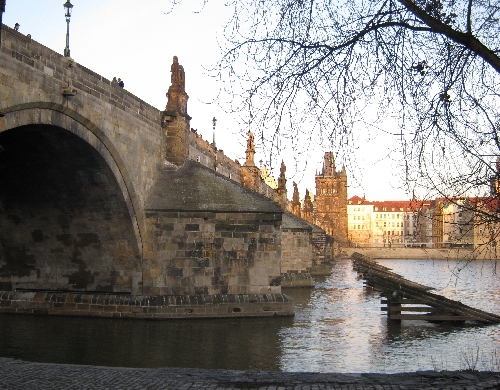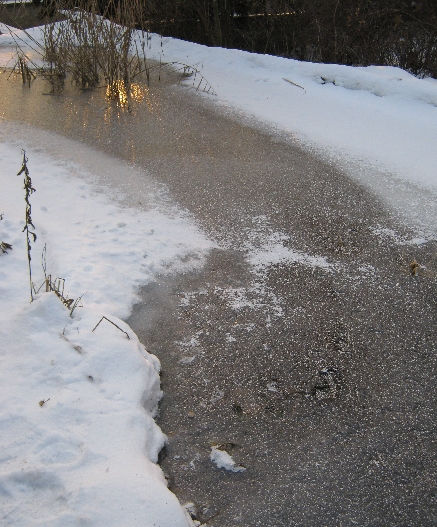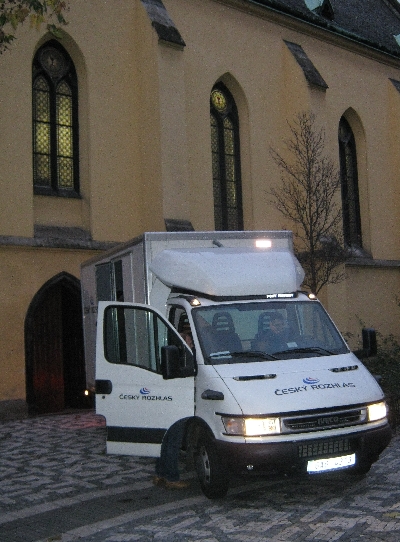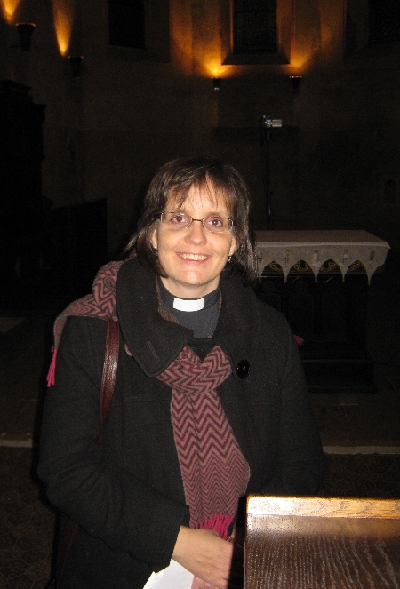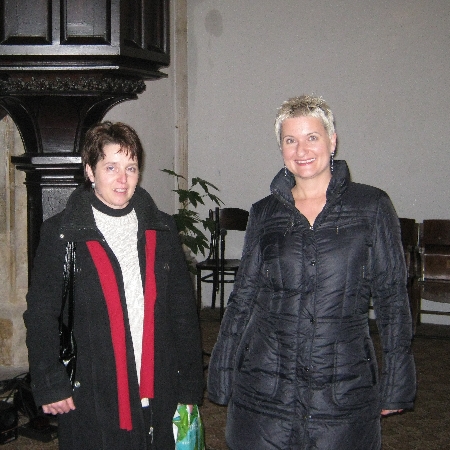
Yesterday, I realised that the next post that I would write on this blog would be post number three hundred! I went to bed last night, trying to decide what on earth would be the most appropriate topic to tackle for such significant landmark in the life of ‘Ricky Yates – an Anglican in Prague’.
Then this morning came the announcement of the appointment of the first ever female bishop in the Church of England – the Rev’d Elizabeth ‘Libby’ Lane, to be the next Suffragan Bishop of Stockport in the Diocese of Chester. Rather than write about ‘Ricky Yates’ or ‘Prague’, why not write about the other noun in my blog title – ‘Anglican’?
I, along with the vast majority of the clergy and people of the Church of England, are rejoicing that with this appointment, we finally have the reality of gender equality in the Church. It has been a very long time in coming! I’m also extremely pleased that this appointment totally confounded the secular media and the bookies!
The secular media has recently been declaring, with its usual self-belief, that the first female bishop would be appointed to one of the four currently vacant Diocesan sees – Southwell & Nottingham, Gloucester, Newcastle or Oxford. But the reality is that most Diocesan Bishop appointments are made from those who are already Suffragan Bishops in another diocese. Therefore it was always almost certain that the first female episcopal appointment would be to a Suffragan, rather than a Diocesan see. Which is exactly what has happened.
Likewise today, the BBC News website is once more revealing the religious ignorance of those who work for it. The news article announcing the appointment of Rev’d Libby Lane as Suffragan Bishop of Stockport, ends by stating, ‘Churches in Scotland, Wales and Northern Ireland already allow women as bishops, but haven’t appointed one yet’. Firstly, it should be Anglican Churches – the Episcopal Church of Scotland, Yr Eglwys yng Nghymru/ the Church in Wales and the Church of Ireland. But the Church of Ireland, which serves the whole of the island of Ireland, does have a female bishop who was appointed and consecrated in 2013. There is actually a link to another BBC news item about her appointment posted below the article!
I fear that in further reporting of today’s historic appointment, journalists will inevitably find an Anglican priest who wants to be more Roman than the Pope, together with a well below the floorboards Evangelical, each of whom will be saying what a dreadful day this is for the Church. As always, disagreement is deemed to be newsworthy, whilst ignoring the fact that 95% of clergy and laity welcome the Church of England finally arriving in the 21st century. At least so far, I haven’t seen the BBC reporting a sound-bite either from the British Humanist Association or the National Secular Society 🙂
But whilst welcoming and rejoicing that appointment to the Episcopate in the Church of England is now possible for any ordained priest, regardless of gender, thus removing a major obstacle to the mission of the Church, there are two other changes which I would also like to see. One relates to my own diocese, the other to the Church of England as a whole. Unchanged, both currently have negative connotations and hinder mission.
I frequently have to explain to people that the Prague and Brno Anglican congregations that I serve, are actually part of the Church of England. They are two of just over three hundred congregations, scattered across continental Europe, Turkey, Morocco and the parts of the former Soviet Union in Asia. Together they form the Diocese in Europe, or to give the diocese its correct full name, ‘the Diocese of Gibraltar in Europe’. And it is that correct full name that is the problem – having ‘Gibraltar’ in the title.
We have numerous growing congregations serving English-speaking residents living in, and visitors to, the Spanish ‘Costas’, as well as in Madrid and Barcelona. You can imagine the difficulties for them with having ‘Gibraltar’ in our diocesan name. Elsewhere in continental Europe, it just appears as laughable – a relic of British imperialism.
I would strongly defend the right of the citizens of Gibraltar to remain British and self-governing, as is clearly their declared wish. I would also quietly remind the Spanish government whenever they complain, as they do at regular intervals, about the Spanish enclaves of Ceuta and Melilla in North Africa 😉 But just because historically, there has been a Cathedral in Gibraltar, it doesn’t always have to be so. As we have rightly decided that both men and women can be ordained, not just men, surely we can change the location of our Diocesan Cathedral and the name of our Diocese.
Today’s announcement of the appointment of the Church of England’s first female bishop, officially came from Downing Street – the Prime Minister making it on behalf of the Queen. This is because of the Church of England still being the official ‘Established Church’ in England, though not in Wales, Scotland or Northern Ireland. Whilst there is now no political involvement in Church of England appointments, this is an anachronism which we do not need.
Being the ‘Established Church’, makes many people believe that we are an instrument of government. Certainly as a result, large sections of the population still believe that the Church of England is funded by the state as the spiritual arm of the Department of Social Security! Being the ‘Established Church’ brings little or no benefit but instead makes our task of mission and of raising the necessary funds to carry out that mission, all the more difficult.
Just because this has been the case, ever since the English Reformation under King Henry VIII, doesn’t mean that it has to remain that way. I respect Queen Elizabeth II for her own strong personal Christian faith and for not being afraid on occasions, to speak about it, as she has in several of her Christmas broadcasts. But if the Church in Wales can be disestablished, as it was in 1920, why not the Church of England in 2015?
The Church of England has properly arrived in the 21st century by today appointing its first female bishop. But it would further help the work of my diocese if we could quietly lose the colonial anachronism of ‘Gibraltar’ from our name and the wider work of the whole Church of England, if it were no longer ‘established’. I even believe that the British Humanist Association and the National Secular Society might approve of my last suggestion 😀


